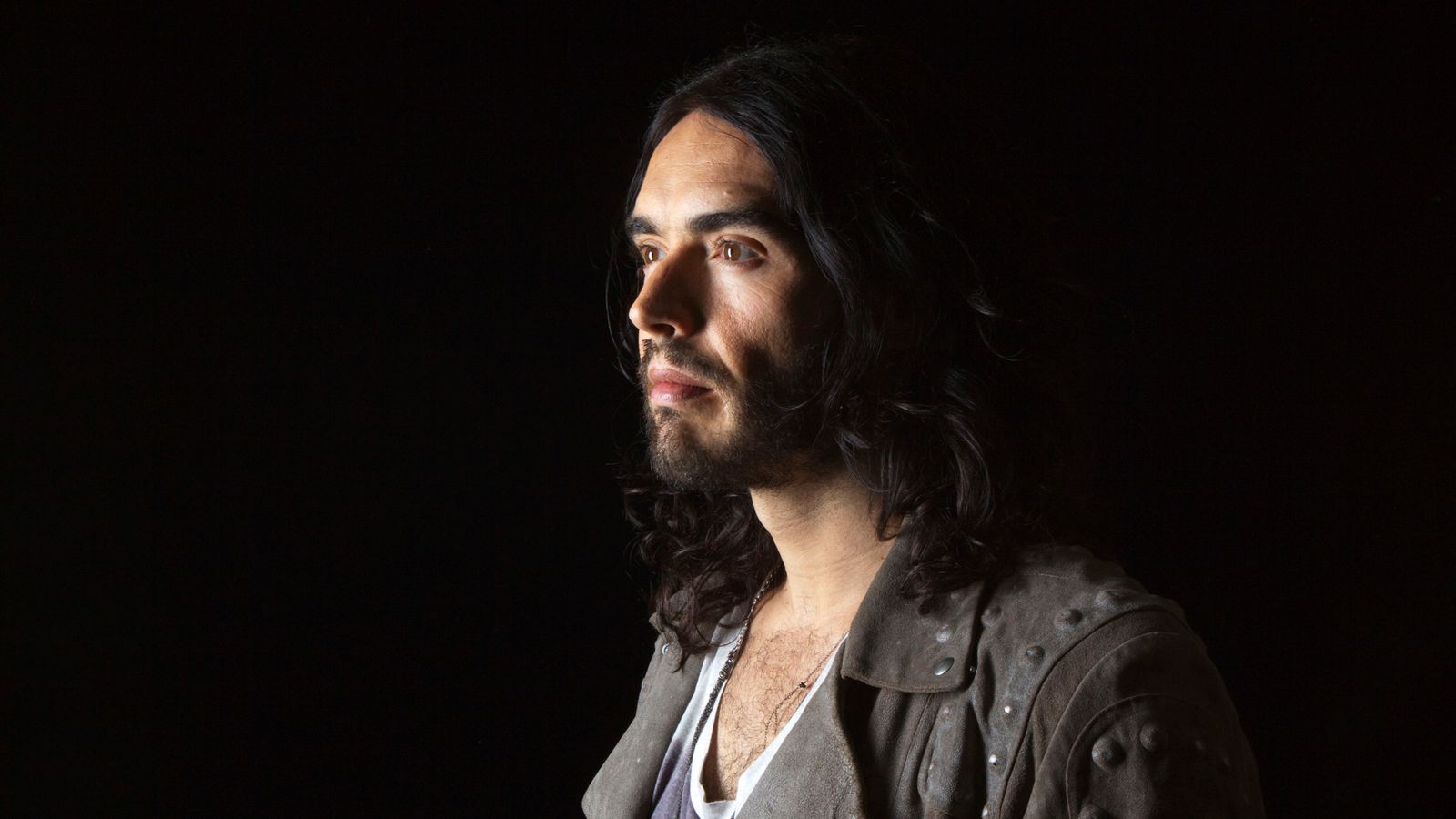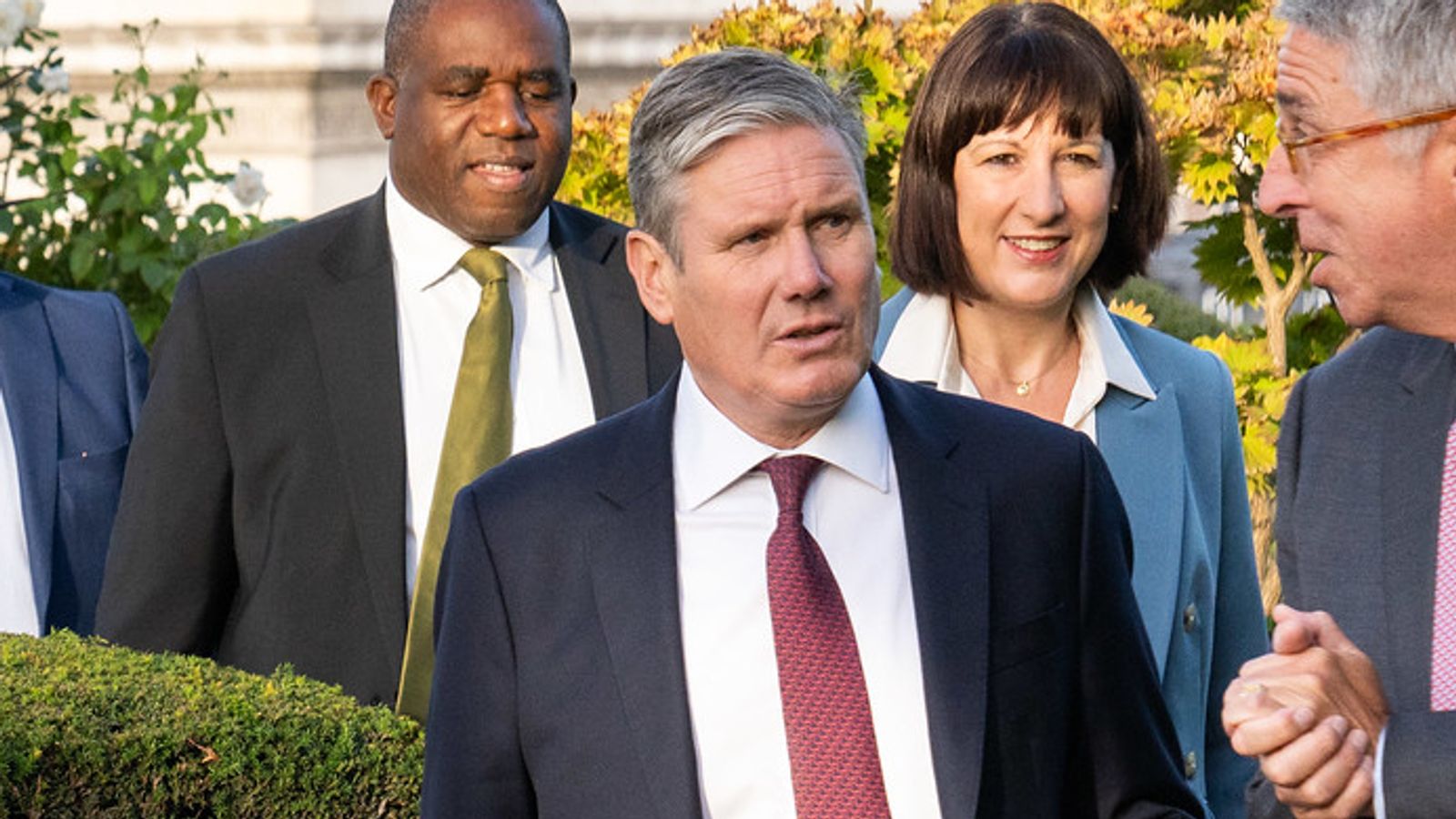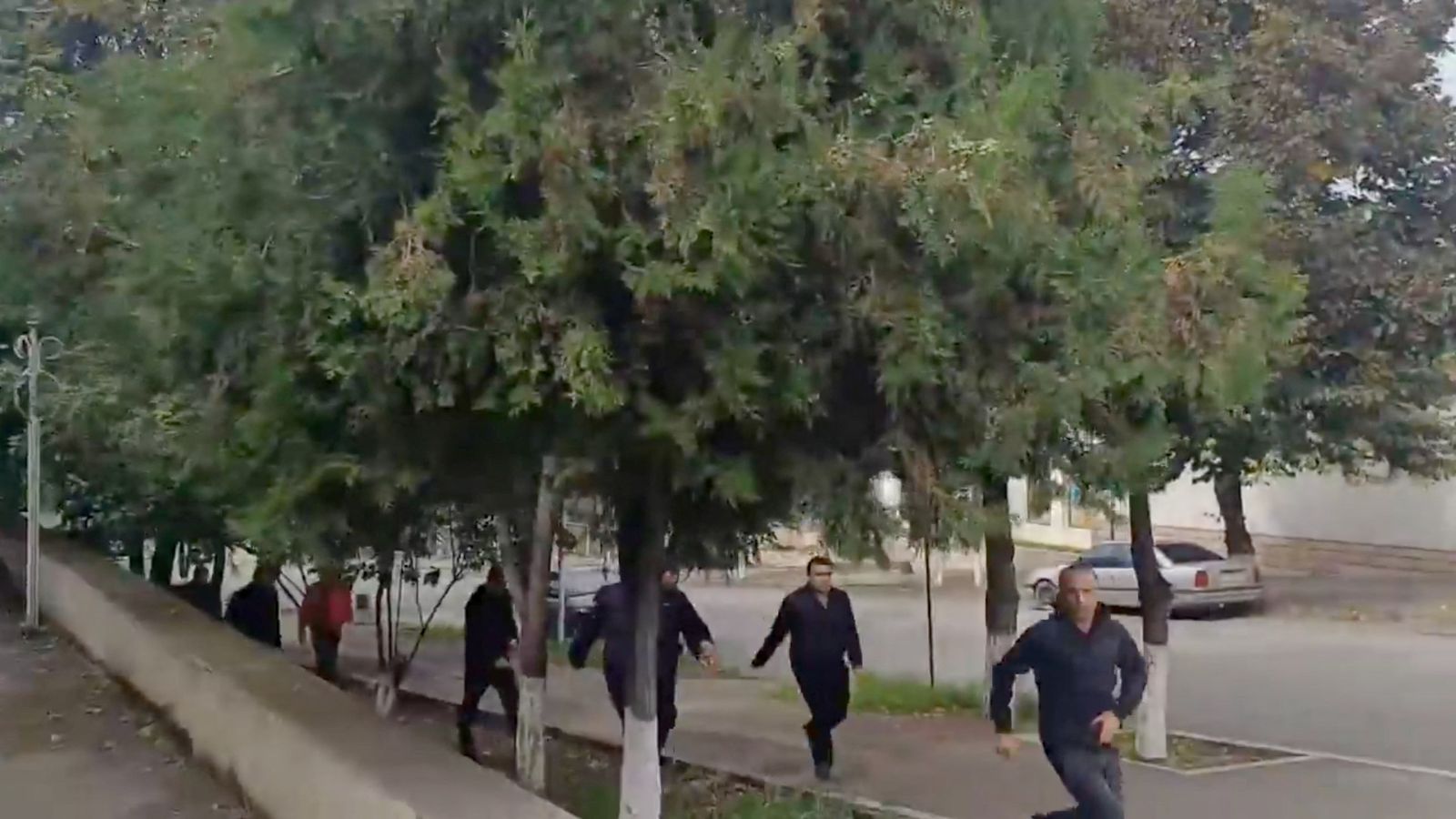Four women have made allegations of rape and sexual assault against the comedian Russell Brand in a joint investigation by The Times, The Sunday Times and Channel 4’s Dispatches.
But as with many high-profile MeToo investigations, there has been widespread social media speculation about why the allegations were not reported to police, as well as the timing and process of the investigation.
Be the first to get Breaking News
Install the Sky News app for free
Commentators like Sir Alan Sugar, Andrew Tate and Elon Musk have all cast aspersions on the reporting in the case, which may be exacerbated by Brand‘s pivot in recent years to anti-media, conspiracy theorist ideology.
But for victims of sexual abuse, its aftermath is harrowing and there are many reasons as to why they may choose not to report their case to police. As well as this, there are many legal reasons as to why the investigation was published now.
‘Victim blaming instead of support’
Caroline Nokes, the Conservative MP who is chair of the women and equalities committee, told Sky News there is a “real anxiety” about reporting sexual abuse to police.
“Very clearly there needs to be a criminal investigation [but] in order for that to happen, these poor victims need to be supported and encouraged and empowered to go to the police.
“We’ve seen far too much victim blaming and shaming of individuals who need to be supported at the current time and not criticised.”
High-profile incidents in which police have been accused of institutional misogyny may also stop victims from contacting police.
“[There are] questions that still linger over the appalling incidents – things like the Charing Cross police station [messages] where there was very obvious misogyny in the Metropolitan Police so victims are reluctant to speak out,” Ms Nokes said.
Low conviction rates for rape
Paul Morgan-Bentley, head of investigations at The Times, was one of the journalists who worked on the Brand story. He pointed to the low conviction rates for rape as a deterrent for reporting allegations.
Rape Crisis England and Wales says less than 2% of rapes recorded by police in 2022 resulted in a charge – let alone a conviction – in the same year.
That may be the tip of the iceberg – five in six women who are raped don’t report it to police, according to the charity.
Read more:
YouTube suspends adverts as BBC removes content from iPlayer
The allegations in full
Dannii Minogue and Katy Perry’s past warnings
“Lots of people have made comments about these women that I’ve seen online, saying things like, ‘well, why don’t you go to the police’,” Mr Morgan-Bentley told Sky News.
“There is a real conversation to be had about that in terms of the criminal justice system and how it fails women.
“You just have to look at conviction rates to see how women who do go to the police straight after they are allegedly attacked, how rare it is for that to result in a conviction.”
‘Many are reliant on powerful men for their incomes’
Fears over careers and incomes can also factor into a decision of whether to go to police.
“Misogyny, sexual harassment and abuse are still widespread in many sectors. The entertainment industry frequently runs on freelance contracts,” Ms Nokes said.
She said the women and equalities committee has found in other inquiries that freelance workers “are reliant upon very powerful individuals for their next job”.
“That leads them to be too afraid to speak out, too afraid to be seen as the difficult one because they’re reliant on these individuals for their income – I think that’s a huge problem for the entertainment sector generally,” she said.
Please use Chrome browser for a more accessible video player
“Powerful men, and it usually is men, tend to be surrounded by a wall of silence by people who protect them or by people who are quite frankly scared to speak out themselves because their jobs are reliant on that individual.”
Mr Morgan-Bentley also touched on the experience of one of Brand’s victims, who worked with him on a TV show.
“The allegations about the junior runner who said she had a sexual relationship with Brand when he was the presenter… there’s a huge power imbalance there.
“It makes it very difficult for that runner to report anything that’s happened to her because it’d be very easy for her to lose her job, the presenter’s not going to lose his job as quickly as the very junior, very underpaid runner.”
Non-disclosure agreements
Former minister for culture media and sport Maria Miller also raised the issue of non-disclosure agreements (NDAs) being used in workplaces.
NDAs are legally binding contracts used to prevent the release of sensitive information, most often in businesses. However, there have been several cases in recent years where NDAs have been used as gagging clauses to prevent employees reporting issues to authorities outside the workplace.
“In other instances, media organisations have routinely been using what they call industry standard nondisclosure secrecy provisions within contracts that they use when people suffer unlawful wrongdoing at work. I hope this isn’t the case here,” Ms Miller told Sky News.
Victims often face debilitating issues after a sexual assault including physical injuries, anxiety, depression, PTSD, pregnancy, sexually transmitted diseases, as well as flashbacks and nightmares, according to Rape Crisis England and Wales, that can cause lasting harm and mean many victims feel unable to go to police.
Different victims also react to trauma in different ways, with some people not experiencing it until months or years after the assault – which may also result in delays or avoidance of reporting crimes to police.
Why was the investigation published now?
The Times and The Sunday Times say they started investigating Brand in 2019 and interviewed hundreds of people including the four victims, their families and friends, comedians, TV executives, industry peers and colleagues and people who worked for Brand.
The investigation team also examined extensive corroborating evidence including messages, contracts and medical records.
None of the four victims know each other and no one was paid to contribute.
Paul Morgan-Bentley told Sky News about the investigation process.
Click to subscribe to the Sky News Daily wherever you get your podcasts
“These are not women who have come together and suddenly emailed The Times and said we want you to tell our stories about Russell Brand.
“Lots of people across the media industry have heard rumours about his alleged mistreatment of women over the years.
“We started looking into it and speaking to people who had relationships with him, people who’ve worked around him.
“It was only through those inquiries that eventually through a source putting [us] in touch with [another] source putting [us] in touch with a friend – that was the process and eventually we met these different women.
“These are women that we then approached and for different reasons they hadn’t come forward previously. In Alice’s case, who was 16 at the time, she talks about growing up and realising what happened to her and now seeing it as grooming.”
Alice did attempt to report her allegations, not through the media, but to Brand’s literary agency Tavistock Wood in 2020. She received a “very aggressive legal letter”, Mr Morgan-Bentley said.
‘Rigorous legal checks’
The newspapers allege some of those interviewed said they have spoken to other outlets but the story was never published – indicating how legally difficult this type of reporting is.
The UK has rigorous libel and privacy law to protect the rights of individuals so a high bar of evidence is required to publish such allegations in any media outlet.
Any media outlet must consider whether the public interest in publishing any allegation trumps the individual’s rights.
Mr Morgan-Bentley said lawyers for The Times, The Sunday Times and Channel 4 worked “rigorously” on the investigation.
Please use Chrome browser for a more accessible video player
“We don’t just hear a story from someone and immediately just report that – we go through a series of checks.
“At the point at which we put allegations to Russell Brand and his representatives, they were incredibly detailed, thoroughly checked allegations that we were satisfied were very much in the public interest to report,” he said.
But high-profile figures can also use the legal system to frustrate and delay reporting.
Injunctions and legal correspondence
Sometimes outlets face injunctions taken by such people that prevent the publication of a particular issue. Injunctions also prevent the reporting of the fact the injunction exists.
Celebrities including the footballer John Terry and Take That’s Howard Donald have previously used injunctions to prevent information about their personal information being published.
There is no evidence Brand has taken steps to acquire an injunction in this case, or taken any legal action whatsoever.
Mr Morgan-Bentley said: “There has been some correspondence with a legal firm that has gone very quiet. They certainly did not address specific allegations.
“Initially, they tried to demand the identities of the women, which we weren’t willing to give up but we gave them plenty of information that would have made it straightforward for him to know who these women were.
“So they tried to push back, but they haven’t come back with any details.”









